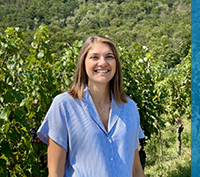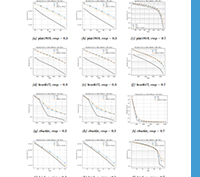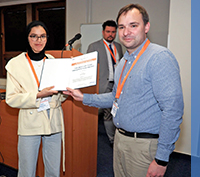PhD defence of Eleni Effraimopoulou
Pectin-based aerogels for thermal superinsulation
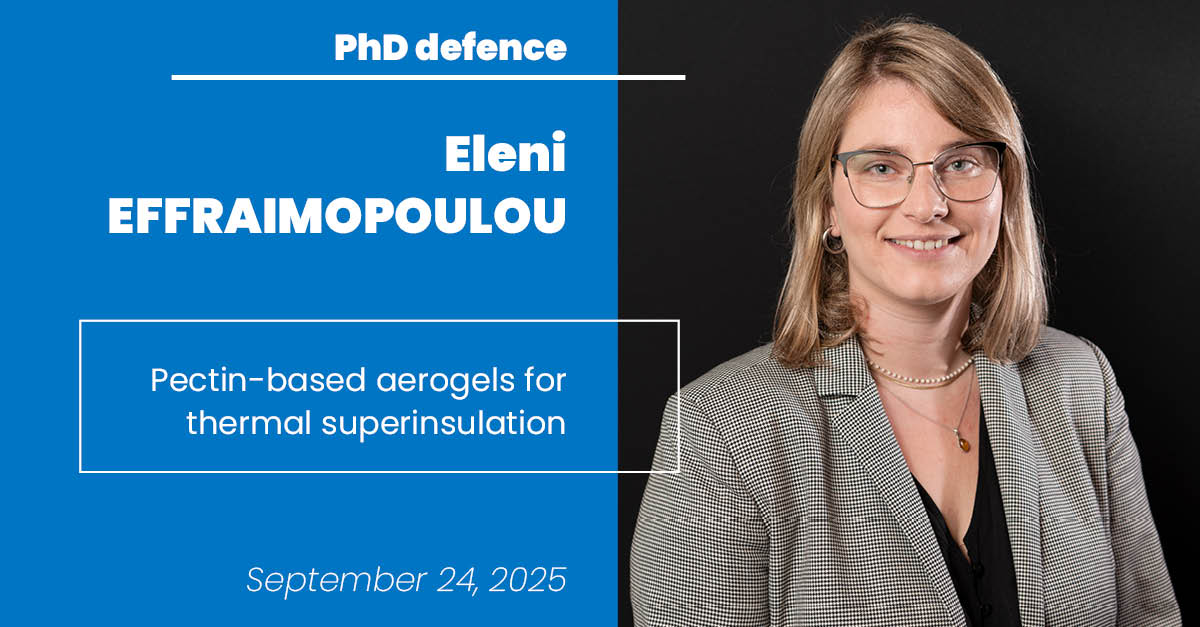
Eleni Effraimopoulou conducted her doctoral research under the supervision of Tatiana Budtova, S&P team, and Arnaud Rigacci, PERSEE Mines Paris – PSL center. She will present her research and defend her doctoral thesis on September 24, 2025, before the following jury:
- Aurelia CHARLOT, INSA Lyon
- Natalie JOB, University of Liège
- Sylvie CALAS-ETIENNE, Université de Montpellier
- Merima HASANI, Chalmers University of Technology
- Wim MALFAIT, EMPA – Swiss Federal Laboratories for Materials Science and Technology
- Tatiana BUDTOVA, Mines Paris, PSL, Centre CEMEF
- Arnaud RIGACCI, Mines Paris, PSL, Centre PERSEE
- Julien JAXEL, Mines Paris, PSL, Centre PERSEE
- Gino MAGIANTE, Cargill
Abstract:
This thesis addresses the urgent need for high-performing, sustainable, and cost-effective thermal insulation materials across multiple sectors, in response to the growing environmental and energy challenges driven by climate change. In this context thermal insulation plays a critical role in reducing energy consumption in buildings, and other sectors as vehicles and industrial systems. Conventional insulating materials, while widely used, often fail to meet all criteria as performance and environmental impact, particularly in space-constrained environments like interior building retrofitting.
Among advanced solutions, aerogels stand out as the only materials that offer intrinsic superinsulation (i.e. thermal conductivity below that of air) at ambient conditions due to their unique nanostructure and mesoporosity. The most developed superinsulating materials – silica aerogels – still suffer from high production costs and mechanical fragility, while synthetic polymer-based aerogels often involve toxic and/or non-sustainable processes. As a response, bio-based aerogels and, particularly, those derived from pectin, a polysaccharide extracted from agri-food waste such as citrus peel and apple pomace, offer a very promising alternative. Pectin aerogels combine non-toxicity, ultra-low thermal conductivity (as low as 0.015 W m-1 K-1), and waste valorization potential, aligning with circular economy principles.
Despite their promise, pectin aerogels face two main barriers to industrial adoption: (1) high hygroscopicity leading to structural degradation and thermal performance loss over time (aging), and (2) reliance on supercritical CO2 drying, which has high capital and operational cost, and is unfavourable for large-scale production and massive diffusion. The goals of this thesis are extremely challenging as they aim to overcome these limitations by developing novel pectin-based materials that maintain superinsulating performance, exhibit long-term stability under humid conditions, and can be fabricated through more scalable routes.
The present research is structured along two main axes: (i) enhancing the moisture resistance of pectin aerogels through different chemical modifications such as hydrophobization via silica deposition, amine grafting, and polyurea coating; and (ii) enabling the production of aerogel-like materials using evaporative drying under alkaline conditions, thus eliminating the need for supercritical processing. Comprehensive synthesis routes and characterization methods were applied to assess materials’ various properties including density, internal morphology, specific surface area, mechanical properties, thermal conductivity, and the evolution of these properties under high-humidity environment.
The outcomes demonstrate the feasibility of the objectives’ set and open the pathways of creating robust, low-cost, and environmentally more sustainable bio-based aerogels suitable for energy-efficient building envelopes and other high-impact applications regarding energy and ecological transitions.
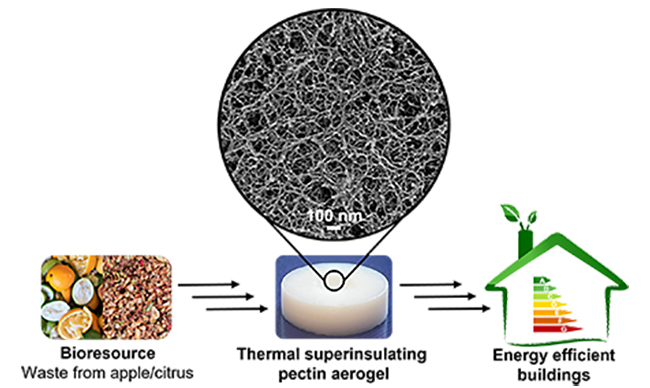
Keywords: nanostructured materials, aerogels, pectin, thermal insulation, aging, hydrophobic modification


